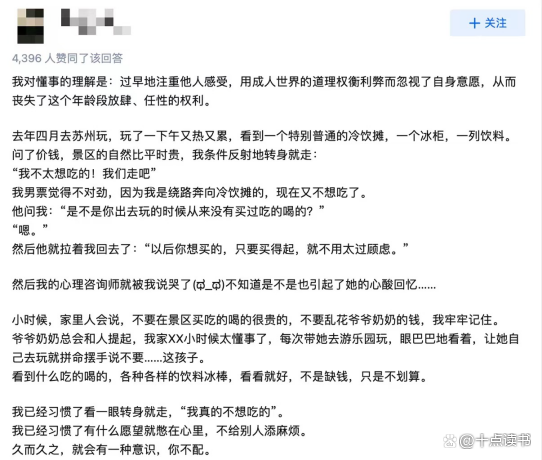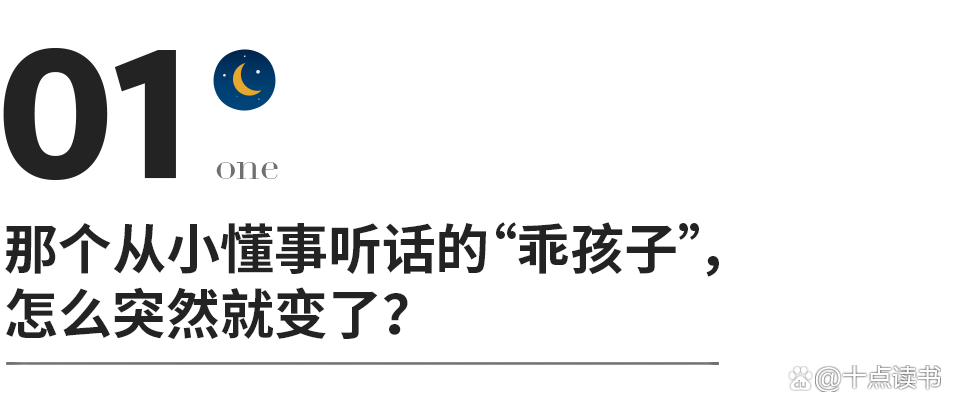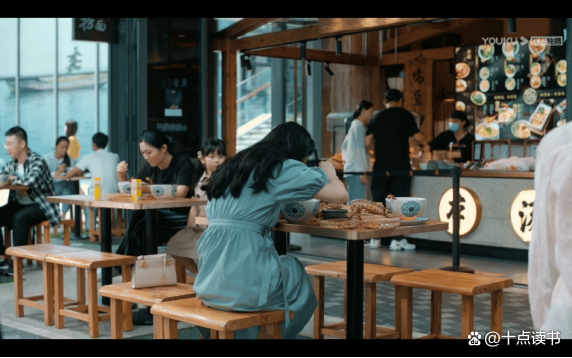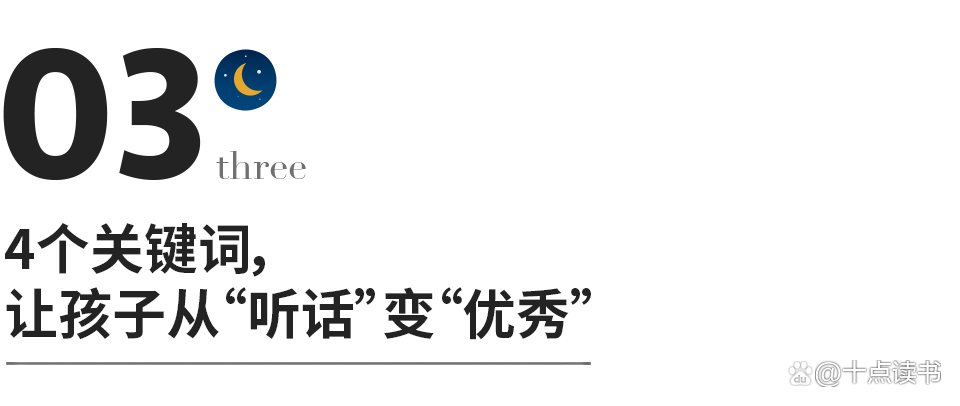Why do children who have performed more and more sensible when they were young, the more psychological problems when they grew up?
Author:Ten o'clock reading Time:2022.08.22
Zhihu see a question and answer: Is the sensible child happy?
The experience shared by a netizen poked his heart:
When I was young, the elders always said to her:
"It is expensive outside, and it is not easy for adults to make money. You have to be sensible and don't spend money."
In order to cooperate with the expectations of the elders, she was appreciated by "sensible", and at a young age, she learned to hold her desire in her heart.
Dare not dare to snacks and toys, suppress your desire to wave and refuse, forcing himself to be a "obedient good child".

However, this "sensible" did not make her happy, but gradually became a "low self -esteem."
Because of the sensible, she lost the right to the child;
Because of sensibility, it affects her inferiority in an adult;
Because of the sensible, she always felt that she was "not worth being loved."
In fact, she is not "sensible" at her childhood, but "gets used to".
In order to cater to the expectations of the elders and to not "trouble" to the adults, she can only be sensible.
However, this premature sensation is costly:
Too much emphasis on others' feelings, ignoring their own wishes, and learning from the weighing and disadvantages of the adult world prematurely, suppressing themselves, and losing the wayward rights that they should have.
Because of this, children who have performed well and more sensible since childhood often grew more psychological problems.

In "Female Psychologist", Jiang Jing has always been a good girl in her mother's heart.
From childhood to large, children's clothing, food, housing and transportation and future choices have fully listened to the mother arrangement, and they grow up according to the appearance of the mother's hope.

However, what mother does not know is that this "well -known" child is unruly in private and is completely opposite to the well -behaved image in front of his family and elders.

Mom has always thought of "the best" to her daughter, and arranged everything properly, but she forgot to listen to the children's true thoughts.
In order to please her, her daughter can only accept it.
Listen to my mother, put on a well -behaved dress, give up the suspender that wants to wear more;
Listening to my mother, choose to learn the piano, give up the preferred shelf drum;

However, this seemingly step -by -step life has long been breathless.
She has no self, no goals, and not knowing why.
Under the severe depression, she began to abuse her and replaced the anemination, trying to use the pain caused by torture to prove that she was "alive."
Mom's sudden rebellion for her daughter, but never found:
This child who has been obedient since he was a child has always suppressed "self";
This obedient girl who thought she was well raised had been tortured to "life is better than death."

British spiritual analyst Donald Woods Winnikot proposed the concepts of "True Self" and "False Self" in 1960.
From an early age, a child who is too obedient and sensible often shows "fake me", which is the "defensive external appearance" used to meet the social needs of parents or interpersonal needs.
However, this "obedient" is based on the child's "ignoring themselves", and this is also the biggest crux of many psychological problems in the future.
The sensible child is not really "understanding", but it is more out of "having to".
Children who have prematurely suppressed too many real needs. If they cannot be solved in time, they will only grow growing and more painful.

When I was a child, I was too sensible and obedient, and these problems often occurred when they grew up.
1. Don’t understand bad people who refuse: Only "please" others will be liked by others
The original purpose of the premature and sensible child is mostly for "please": please parents, please others, in exchange for acceptance and love.
However, when pleased as a habit, "not fit" will follow.
Psychologist Maslow said:
If a person does not pay attention to his own experience, he always chooses "the option recognized by others", and will eventually be unable to appreciate any joy.
It is true that when a person lives, the purpose of living is to play "letting others accept himself", rather than "being a real self", then it will be difficult for him to experience the happiness from the heart.
2. There is no opinion follower: everything is used to "obey", it is difficult to do things independently
There is such a paragraph in the book "Understanding the Language of Children":
If the child has no right to express his feelings, if we just respond to what he speaks, but ignore his feelings, then we are telling him clearly-
"Your feelings are not important at all, and your so -called‘ I ’is also meaningless."

The children who listened to all things from a young age gradually closed their self -consciousness and obeyed, so that they lacked independent training.
One day he needed to face things, he had no ability to deal with it at all.
3. Twist of critical participation: towards another "extreme", facing everything
There is a very important stage in the growth process of children: the awakening of self -awareness.
However, blindly asking children to "obedient and sensible" will suppress his "self".
If the child's self has never been seen and his voice has not been heard, he will have "anxiety", and it is easy to move towards another extreme: critical participation, everything is facing you.
Of course, critical participation is not to "criticize", but to "participate" and to highlight the sense of presence of "self".

In fact, letting children "obedient" blindly "laziness" in disguise of parents. The real sensation is not to obey the parents, but to know, understand etiquette, understand right and wrong, and discern the right and wrong.
Make your child "crooked", parents can try so.
1. Agree: identify with the child's "participation" and make the child feel accepted
When the child starts to express his point of view, it is actually a manifestation of his mental growth. Don't rush to decide. You can try the "28th Rules":
80%of the time is left to the child and let him say;
20%of time is used to guide, inspire children to speak complete, and be his loyal listener.
We can not accept children's point of view, but we must recognize the child's power.
It is an important manifestation of the child's "self".
2. Guidance: Make up the child's cognition, and teach him to be a "adult"
Children are not mature at the level of mind, thinking, and cognition, so letting him participate in his opinions does not equal to the whole acceptance.
It is only the first step to allow children to put forward their own views. It is a more important second step to guide children to make up for cognition and improve thinking.
In fact, when children are awakened by self -consciousness, they all want to "be an adult."

In this case, it is better to take this as an opportunity to make timely guidance and teach him how to really "think like an adult."
3. Let go: allow children to make mistakes and return the trial and error right to the child
Afraid of children's loss and worrying for their children, it is the "common problem" of almost all parents.
For a problem that a child will encounter, it is not too difficult to prevent him from preventing and avoiding the pit in advance by a more social experience.
However, this "intervening" can cause the child to have no chance of trial and error, and it will not be able to correct themselves, which is not good for growth.
In fact, what children do not have to do things are not necessarily a good result. There is a chance to try and error. It is more important to correct themselves, learn to bear, and grow up.
4. Expression: Love children unconditionally, establish a "inner barrier"
Building your own value in the evaluation of others is a psychological characteristic of sensible and flattering, and this psychology often stems from the lack of "unconditional love".
There is such a sentence in Freud's Mission:
A person who is unquestionable to be loved by his parents will maintain the winner for life. And this belief will cause him to continue to succeed in this life.
"Unconditional love" is the strongest barrier of the child's heart. It is the maximum base of himself that he can express himself without extremeness and the most precious gift given by his parents.
As the parenting expert Adele Fabe said:
"Make children a flesh -blooded child, and a person with emotions is more important than keeping him as a 'mother's good child'."
The growth path is long, and the child cannot learn bad, but the same, it does not need to be "too good."
Author | Mimi, children's psychological research enthusiasts, explore every step of growth, cure together, and grow together
Picture | Visual China, the Internet (if there is any infringement, please contact delete)
- END -
Summer children's care service activities

During the summer vacation, the women's federation at all levels in our city carri...